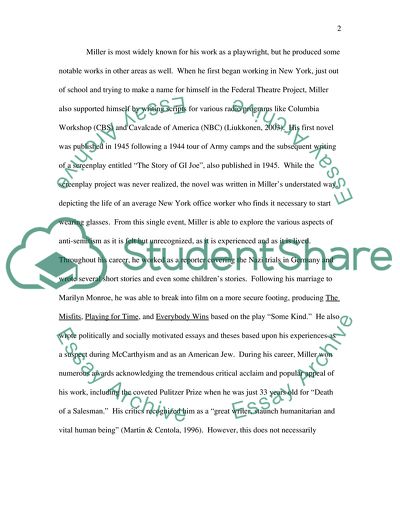Cite this document
(The Life and Works of Arthur Miller Coursework Example | Topics and Well Written Essays - 1500 words - 1, n.d.)
The Life and Works of Arthur Miller Coursework Example | Topics and Well Written Essays - 1500 words - 1. https://studentshare.org/biographies/1724182-arthur-miller
The Life and Works of Arthur Miller Coursework Example | Topics and Well Written Essays - 1500 words - 1. https://studentshare.org/biographies/1724182-arthur-miller
(The Life and Works of Arthur Miller Coursework Example | Topics and Well Written Essays - 1500 Words - 1)
The Life and Works of Arthur Miller Coursework Example | Topics and Well Written Essays - 1500 Words - 1. https://studentshare.org/biographies/1724182-arthur-miller.
The Life and Works of Arthur Miller Coursework Example | Topics and Well Written Essays - 1500 Words - 1. https://studentshare.org/biographies/1724182-arthur-miller.
“The Life and Works of Arthur Miller Coursework Example | Topics and Well Written Essays - 1500 Words - 1”. https://studentshare.org/biographies/1724182-arthur-miller.


